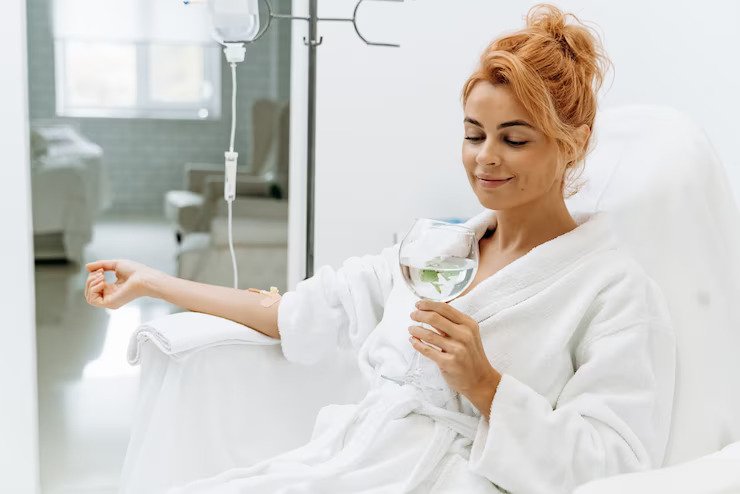In the pursuit of optimal health and well-being, innovative approaches to wellness are continually emerging. One such method that has gained prominence in recent years is Intravenous (IV) hydration therapy.
Originally used primarily in medical settings to treat dehydration and nutrient deficiencies, this technique has evolved into a popular wellness trend with claims of boosting energy, enhancing recovery, and promoting overall vitality.
This article delves into the science behind IV drip therapy and its potential benefits in fast-tracking recovery.
Rapid Rehydration and Nutrient Infusion
One of the key benefits of IV hydration therapy is its ability to rapidly rehydrate the body. Dehydration can occur due to strenuous exercise, illness, or excessive alcohol consumption. IV therapy provides a direct and efficient means of replenishing fluids and electrolytes, allowing the body to quickly recover its optimal hydration levels.
Additionally, Intravenous hydration therapy delivers a potent combination of vitamins and minerals into the bloodstream. This can be particularly beneficial for people with nutrient deficiencies, as the direct infusion bypasses potential absorption issues in the gastrointestinal tract. Nutrients like vitamin C, B vitamins, magnesium, and zinc are commonly included in IV formulations, each playing a vital role in various bodily functions such as immune support, energy production, and cellular repair.
Post-Workout Recovery and Performance Enhancement
Athletes and fitness enthusiasts have turned to Intravenous therapy to expedite recovery and enhance performance. After an intense workout, the body’s nutrient stores can become depleted, and muscle tissues may undergo stress and inflammation. IV therapy provides essential nutrients that aid tissue repair, reduce inflammation, and promote muscle recovery.
For athletes looking to optimize performance, this therapy can provide a competitive edge by maintaining optimal hydration levels and ensuring a balanced intake of key nutrients. Some IV formulations are designed to support endurance, stamina, and muscle function, making them popular among those aiming to excel in their respective sports.
Boosting Immune Function and Wellness
A strong immune system is essential for overall well-being and resilience against illness. Intravenous hydration therapy has gained attention for its potential immune-boosting effects, primarily through the infusion of high vitamin C. Vitamin C is known for its antioxidant properties and role in supporting immune cell function. By delivering vitamin C directly into the bloodstream, this therapy may offer a more efficient way to enhance immune response compared to oral supplementation.
Moreover, individuals seeking relief from common ailments such as colds, fatigue, and migraines often utilise IV therapy. The direct infusion of nutrients can provide a rapid and effective way to alleviate symptoms and restore a sense of well-being.
Holistic Wellness and Vitality
Beyond the specific benefits mentioned, Intravenous therapy has become synonymous with holistic wellness and vitality. The experience of receiving an IV infusion in a comfortable and serene setting can contribute to a sense of relaxation and rejuvenation. Some individuals report an immediate boost in energy and mental clarity following a session, attributing these effects to rapid nutrient absorption and hydration.
However, it’s important to note that while this drip therapy offers potential benefits, it should not be considered a replacement for a balanced diet and a healthy lifestyle. Consulting with a medical professional before IV therapy is recommended, especially for individuals with pre-existing medical conditions or sensitivities to certain nutrients.
In conclusion, IV drip therapy has transcended its medical origins to become a sought-after wellness practice, lauded for its rapid rehydration, nutrient infusion, and potential to expedite recovery. Whether used for post-workout rejuvenation, immune support, or a boost in overall vitality, Intravenous therapy has undeniably piqued the interest of those seeking innovative approaches to health and wellness. As the trend continues to grow, further research and understanding of its long-term effects will help determine its place in holistic well-being.
Read Also:
- Empowering Lives With Occupational Therapy: How NDIS Makes A Difference
- Reimagining Mental Health: How Neurofeedback Therapy Is Shaping The Future Remotely?
- Psychedelic Therapy for Mental Health Conditions
























